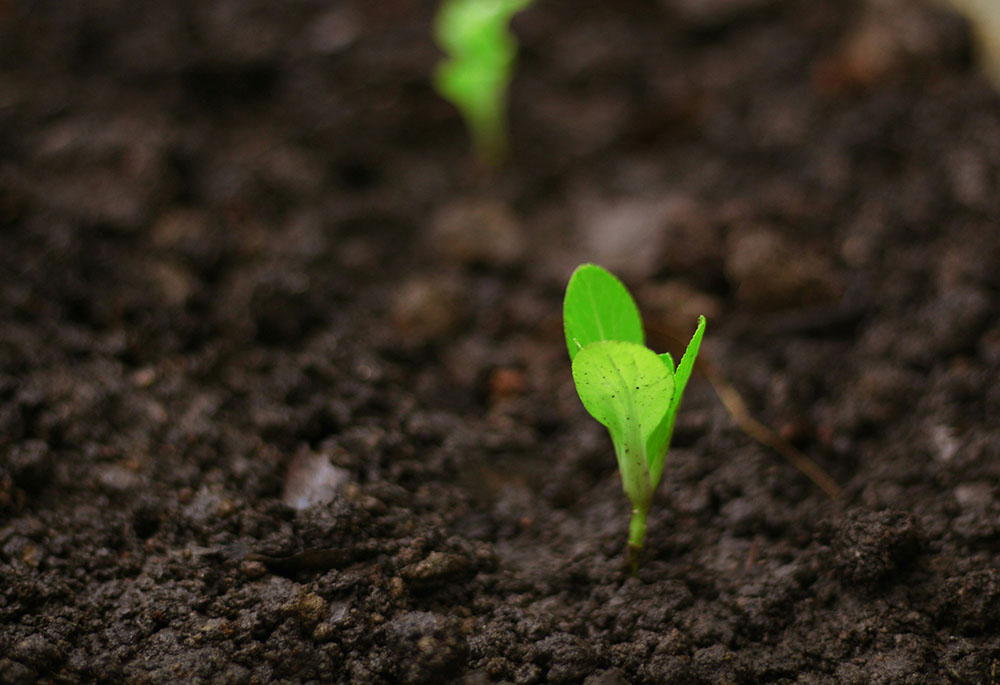
(Unsplash/Daniel Dan)
When I was about 4 years old, my parents were expecting a visit from friends who lived very far away. I could not have been more excited. The Kings were coming to our house! I dreamt about their crowns and robes and what magnificent stories they could tell. What a letdown when an ordinary couple, just like my parents, arrived with suitcases in hand and ordinary hats on their heads. I had never seen royalty, but they definitely did not fit the bill.
All of Jesus' preaching and activities focused on God's reign. He invented parables about it, he said it was near — even among and inside us — and he talked about it as the reality of the future. His audiences held their own images of God's kingdom — mostly as something that would top the reign of David and bring them more fame than Solomon's temple.
Under oppression, they awaited God's savior who would overturn the forces of evil and raise up the chosen people. In many ways, they had good ideas, it's just that Jesus lived his kingship and fame in an entirely different way than they expected. The people were seeking a familiar version of a kingdom while Jesus was inviting them, not into a new geopolitical structure, but a new way of life.
Jesus' kingdom image may falter for modern people born into democracies. For us, kings conjure up more of Disney and senior prom than what Jesus was describing. Perhaps we should start referring to Jesus' central symbol as a gerund. The "reigning of God" has no geography. It's more like a force or tone that permeates all of creation.
In today's Gospel, we hear the carpenter from Nazareth talking like a kid from a farming family. First, like an entranced child he describes stage one — the hidden growth of seeds. Just like our Neolithic ancestors who discovered that if they planted a foraged seed, they could expect lots more fruit in due season, we're invited to marvel at the miracles of growth all around us. This kind of discovery is world changing.
The "reigning of God" has no geography. It's more like a force or tone that permeates all of creation.
How (extra)ordinary! Farmers scatter seed, they sleep and get up, maybe they even play catch. All while the seeds are invisibly sprouting and growing through a power the farmers didn't invent, probably don't understand and can't control. All they can do is water the seeds and pull weeds. This parable invites us to joy-filled wonder.
The parable of the mustard seed was either an example of Jesus' outrageous sense of humor or a proof that he didn't grow up farming. Mustard sabotages other crops. Considered an uncontrollable weed, it chokes out anything in its ever-expanding territory. Exercising his typical tongue-in-cheek exaggeration, Jesus wove this confounding description of the reigning of God to stimulate curiosity beyond any preconceptions.
How might Jesus' images enlighten us today? Perhaps the image of seed that grows surely and imperceptibly suggests that the reigning of God is a power inherent in creation. Is God's rule the dynamic of growth and grace that has driven evolution ever since the Big Bang? St. Paul hinted at this when he said, "All creation is groaning in one great act of giving birth" (Romans 8:22). Some theologians call this creation's "initial aim," an inborn purpose and energy attracting everything toward union in God. Whatever does not collaborate in the movement will disappear "like chaff driven in the wind" (Psalm 1).
Advertisement
Jesus' mustard seed image complements the notion of the hidden seed's tenacious tendency toward life. Not only does God's reigning grow from a power inherent in creation, but it can take over like an irrepressible weed. Because it is creation's destiny, we can do no more than collaborate or temporarily hinder it. The paschal mystery teaches that it cannot be stopped.
Ultimately, the reigning of God that Jesus preached is far more ordinary than what his contemporaries were hoping for. Ironically, it is also immensely more powerful than any army or bank account. As people of the resurrection, we can hear Jesus' images as an assurance that God's reigning is here and there and everywhere, and that it will be the future of everything. When we believe that, we can relax because it's not all in our hands. We can also trust that others will catch on and we'll all be part of a world changing dynamic.
So, kings may not be on our horizon, but the reigning of God is among us. We're on the way to it and we can make it our way of life.








